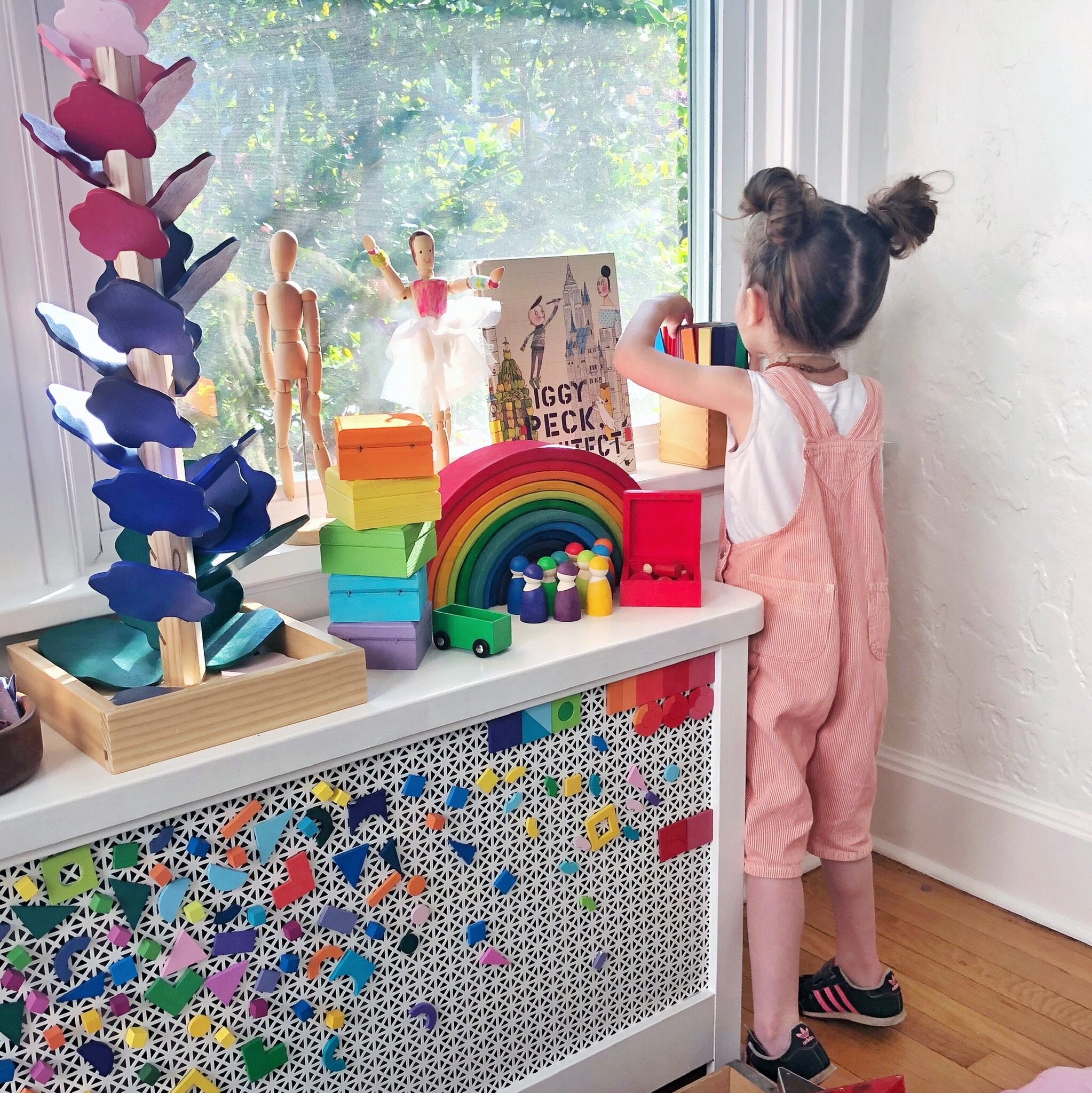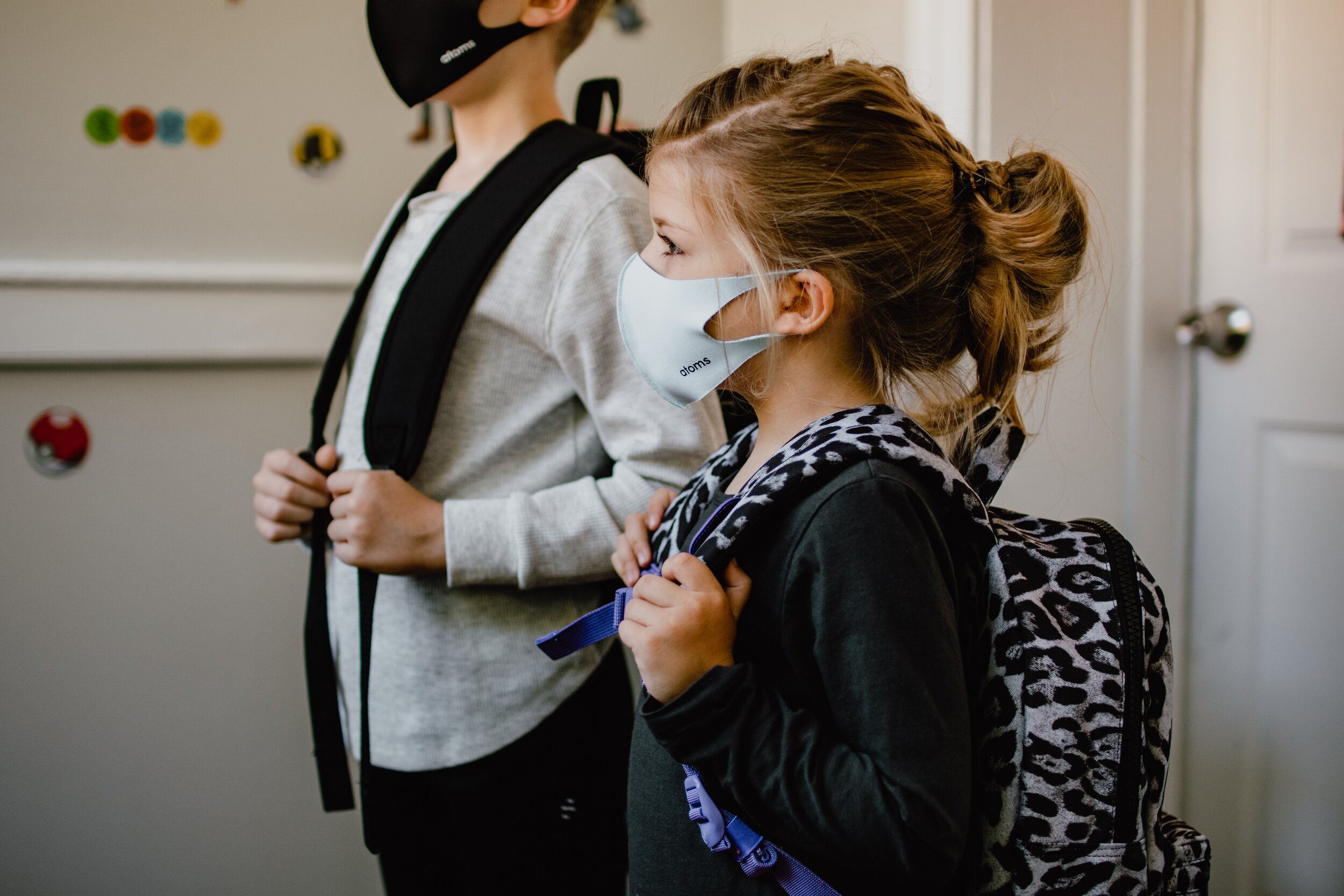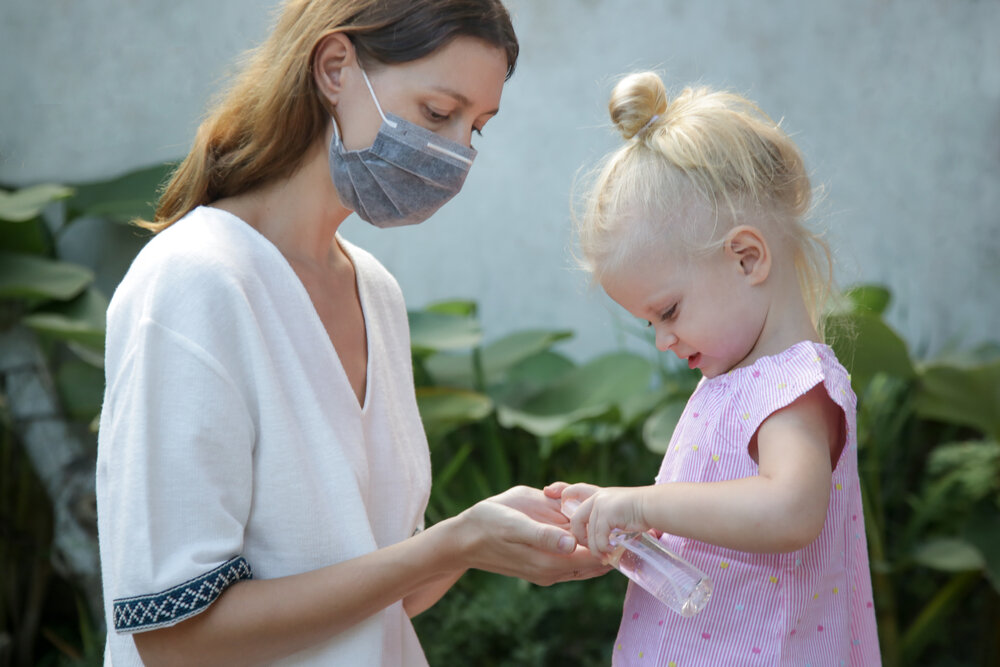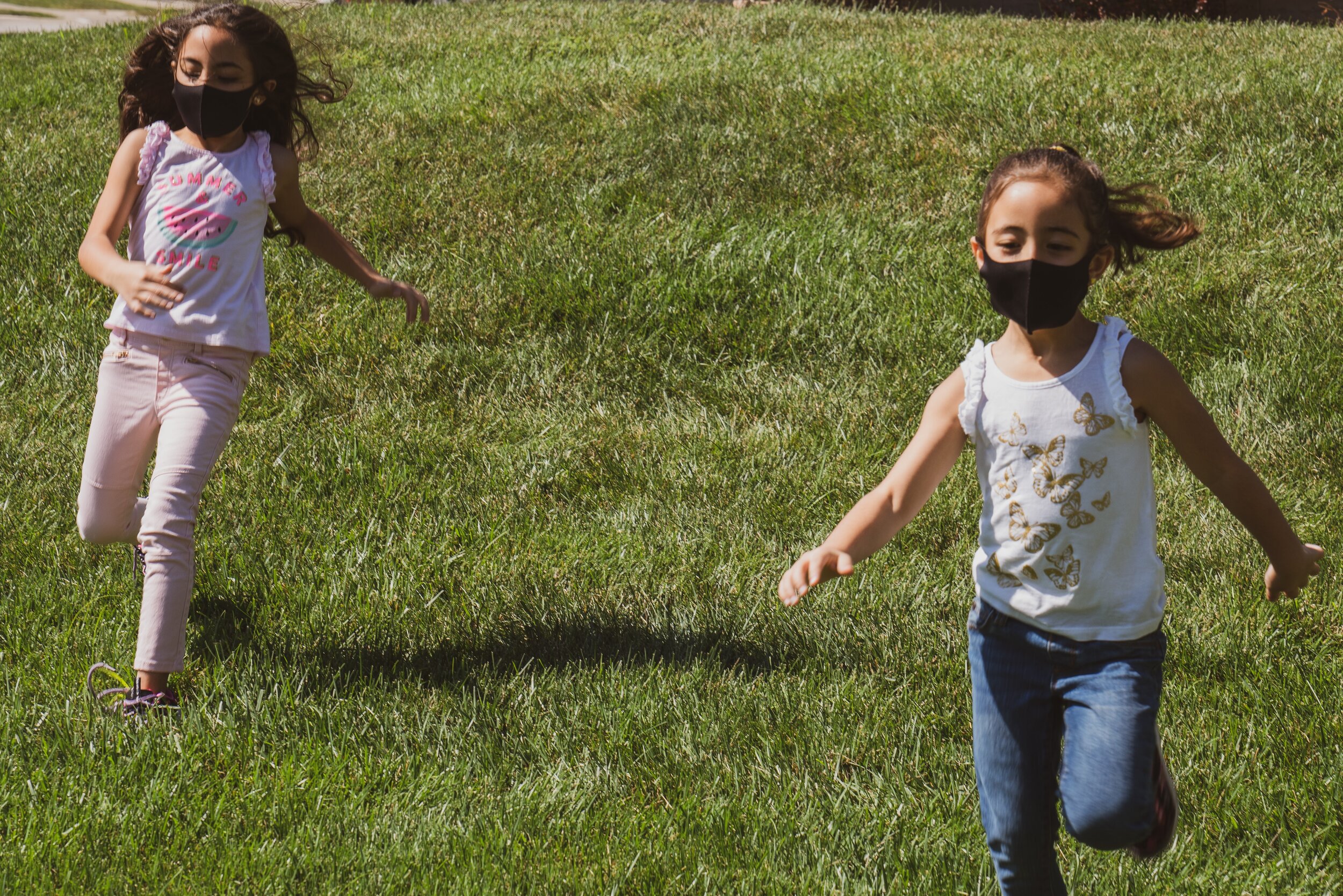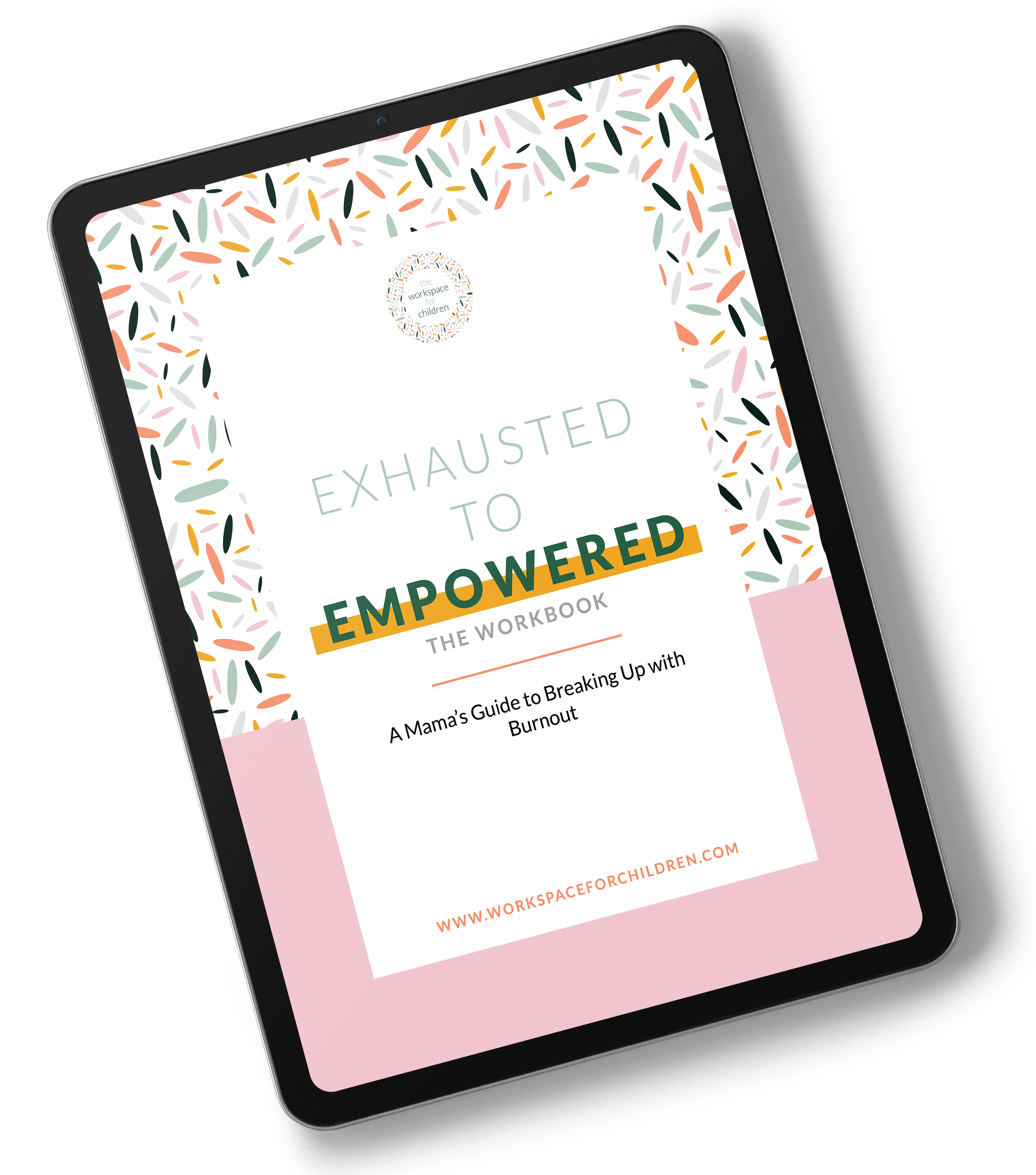Talking To Your Child About Covid - Guest Blog By Veronica Wallace
/Guest Blog Authored By Veronica Wallace of Udynamic’s
Disclaimer: Although we have cited facts in this post, we are not medical professionals. We cannot give advice on the diagnosis or treatment of COVID-19. Instead, we want to offer you suggestions about how to handle this topic during conversations with children at home. We encourage you to do your own research about the virus and how to keep you and your family safe.
Many people think of children as carefree individuals, but the reality is that they deal with anxiety issues just as adults do. Recent estimates indicate that anxiety may affect up to 30% of all children, which is more than most people expect.
Now that we’ve been living in this strange COVID reality for over a year now, your child may have more questions. They’ve likely heard of news stories or know friends/family members who have become sick. Their questions are getting tougher and tougher to answer, like:
Can I go back to school yet?
When can I have birthday parties with my friends?
How much longer will it be until COVID-19 is gone?
When will things go back to normal?
If you feel like you still don’t know how to approach a conversation like this with your child, you aren’t alone. In March 2020, no parent was prepared to handle the reality of a global pandemic, let alone explain it to a young child.
Talking to children about COVID-19 does more than ease their fears—it also teaches them how they can continue to protect themselves and others against the virus. Here are a few things to keep in mind when discussing the ongoing pandemic with your child:
Be Honest, but Age-Appropriate
The conversation that you have with a 5-year-old about COVID-19 is going to be different than what you’d discuss with a 10-year-old.
Many of the words and terms that we use to discuss the virus may be too complicated for a young child—terms like “quarantine”, “third wave”, or “physical distancing”.
It might be tempting to reassure your child that they won’t get sick, but making false promises may confuse them if they do come in contact with the virus. Instead, be truthful, but be sure to stress optimism. This allows your child to see the situation in a realistic way.
For example, telling your child that they’re safe from the virus may ease their fears, but it may also discourage them from following safety measures. Instead, stress that by wearing a mask, washing their hands, and maintaining distance from others, they can avoid COVID-19. Let them know that their risk of getting sick is low and that following these rules makes them even safer.
The CDC has released guidelines for answering children’s questions about COVID-19 to help parents give age-appropriate and factual responses.
Explaining the Vaccine
Even though COVID-19 may be weighing heavily on the world, it isn’t all doom and gloom. Hope is here, and it has arrived in the form of vaccines.
Once your child understands that the virus is a sickness, their next concern might be how to avoid it. When the pandemic first began, you may have explained to them that washing their hands and wearing a mask was very important. Vaccines are now available that offer additional protection to those who are eligible. But be sure to remind your children that even with the vaccine, it’s still important to follow healthy habits, like keeping your hands clean and maintaining physical distance!
Your child may be worried about their grandparents or other older family members. Ease their anxieties by explaining to them how the vaccine works using language they can understand.
The idea of building resistance to a virus is likely too complex for most young children. Here are a few other phrases that you can try:
You wear a helmet when you ride your bike. A vaccine is just like a helmet that protects you from a sickness!
The vaccine is like a shield or set of armor that can protect people from COVID-19. It can help keep grandma and grandpa from getting sick.
Remember how we apply sunscreen on a hot day to protect your skin from sunburn? A vaccine is like sunblock, but for the cold/flu!
Although vaccines are not available for young children just yet, clinical trials are underway for those ages 6 months to 12 years.
Make it a Game!
After a difficult conversation about the pandemic, it can be helpful to have some fun. Once you wrap up your talk, spend time doing an activity that your child enjoys.
Games are easier for children to digest than difficult conversations. Use this to your advantage to encourage your child to wash their hands or avoid touching their face. You can go about this in a few ways, like:
Giving them “points” each time they wash their hands. Accumulating enough points can unlock a reward!
Teaching them about physical distancing by playing a game; whenever you get too close to someone, you have to do something silly—a dance, gesture, or making a face.
Writing a song for them to sing whenever they’re washing their hands.
Taking Care of Your Child & Yourself
Given everything that you’ve dealt with over the last year, it’s tough to put on a brave face for your child. You know that showing your stress or anxiety may make your child’s fears worse, but pretending to be an indestructible parent can take its toll.
You may need some time for yourself to recharge, refresh, and revitalize your spirit. However, that requires alone time, which is tough to find when you have a young child.
Exhausted to Empowered is a course that can help you teach your child about playing independently. This allows you to create some much-needed time for yourself. It’s perfect for children between 18 months and 8 years old. If you need a break from burnout, check out these 24 audio lessons!
It can be helpful to speak openly with your child about the pandemic because it validates their feelings. Reassure them that feeling a bit scared or confused right now is perfectly normal. By explaining the situation to them, you can soothe their anxieties.
As the COVID-19 continues to evolve and change, try to keep your child informed about current events.
Authors bio
Veronica Wallace is a blogging enthusiast. Some of her favorite articles can be found on Udynamic’s website. At Udynamics they believe in a holistic approach to healing and recovery from addictions. Their program specializes in providing individuals and families with support through counseling, education, and mentorship.

